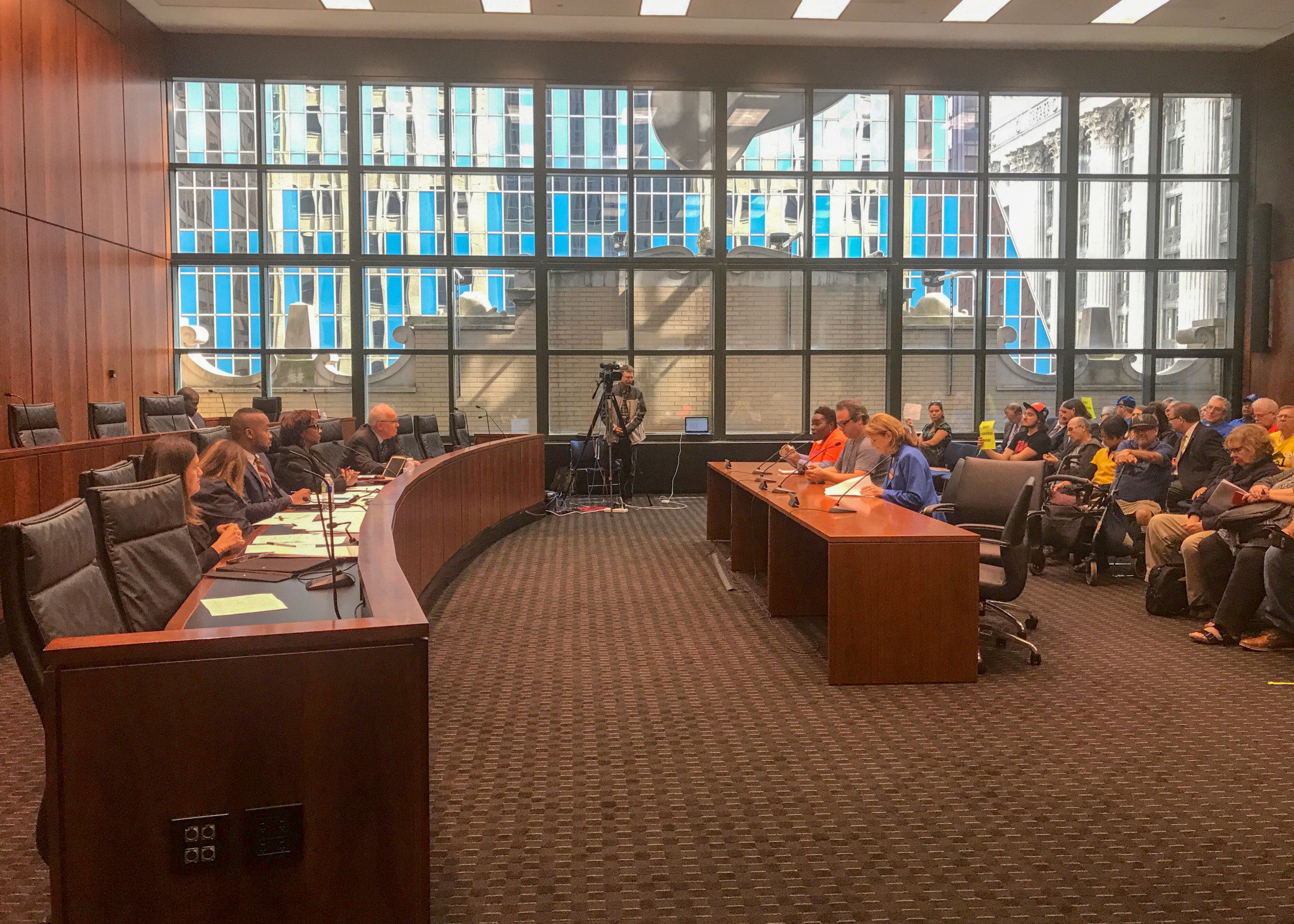Tommie Lewis never imagined she would be homeless. But after a breast cancer diagnosis in her thirties, she lost her entire support network: her house, her marriage, her daughter, her job at USPS, and even her dog. Lewis became homeless during her recovery from cancer treatment, moving from shelter to shelter because each one had a time limit on how long an occupant is allowed to stay. A year later, out of options for shelters where she had not exhausted the time limit, her only housing option was to live with a man she was seeing at the time. He rented her a small room on the South Side of Chicago, but was physically abusive.
“The relationship was toxic, manipulative, and deceiving,” Lewis remembers, “but I stayed with him to keep from becoming homeless.”
Stories like Lewis’s are not unusual. Our city, like many throughout the country, is in the middle of a longstanding affordable housing crisis. There are many ways to address this crisis, but one of the simplest is to take steps to stop rents from rising exponentially. However, rent control is currently banned statewide under the 1997 Rent Control Preemption Act. Repealing the ban and enacting rent control measures is the goal of the Lift the Ban Coalition. For women and queer people of color like Lewis, who are part of the coalition, the fight for rent control is about having choices; it’s an end to the hidden compromises people have to make every day in order to survive. The choice between homelessness and freedom from violence is not a choice.
Many women and LGBTQ+ people stay in housing situations with people who are abusive in order to keep a roof over their heads. Nearly three U.S. women are killed every day by intimate partners, and Black women are impacted by intimate-partner violence at a rate that is thirty-five percent higher than it is for white women. According to Apna Ghar, a service and advocacy organization working to end gender violence in immigrant communities, domestic violence survivors are often concerned that they will not make enough money to pay rent on their own, and a lack of affordable housing influences their decisions about leaving abusive relationships. This was the case for Roxy Pelagio, a Lift the Ban Coalition member currently looking for housing. For Pelagio, who was pushed out of her housing situation because it became life-threatening, “rent control in Illinois would make an enormous difference in my confidence to maintain my housing and my budget.”
Our unregulated housing market doesn’t work for most people. Right now, a person needs to work 2.5 full-time minimum wage jobs in order to afford a one-bedroom apartment in most of the United States. In Chicago in particular, rent burden—which means that rent is more than thirty percent of a renter’s household income—is very high. Part of this is because rent costs continue to rise while wages remain stagnant: Between 2000 and 2009, household incomes fell 8.1 percent while the percentage of rent-burdened individuals increased by 10.1 percent to 54.6 percent, over half of the city, according to an analysis of Census data by the Chicago Rehab Network.
Rent control would determine just how much rent can rise in a given community each year. It ensures people can stay in their homes, stopping displacement in rapidly gentrifying communities like Chicago’s Uptown, Pilsen, Logan Square, and Hyde Park neighborhoods. With rent control, tenants can stay in their neighborhoods and have money for child care, groceries, and the other basic necessities that improve our quality of life. In Chicago, rent control is also a way to make sure Black and Latinx families aren’t rapidly pushed out of their communities due to the cost of housing.
Krystle Trevino, another member of the Lift the Ban Coalition, is also dealing with homelessness and abuse. Trevino first found herself homeless at the age of fifteen, “circling from bad situation to bad situation” after leaving sexually and physically abusive family members and ex-partners. Trevino’s whole life is in Chicago: her family, her children, her church, public transit. However, as she searches for a place to live in her hometown, she struggles to find anything affordable—everything she can find is miles away from the people she cares about. She is currently staying with her adoptive family after leaving two abusive relationships, looking for steady work, and trying to go back to school, but she has lost custody of her two sons due to being homeless.
There is no choice between freedom from violence and homelessness. As Lift the Ban Coalition member Caitlin Brady says: “No one should have to stay in a horrible situation because it’s economically feasible. No one should have to choose between a fist and homelessness.” We all deserve choices. The fight for rent control in Chicago and across the country is just the beginning.
ONE Northside is a community organization that builds collective power to eliminate injustice through organizing. Writers are all part of the Lift the Ban Coalition, a grassroots coalition fighting to end the ban on rent control in the state of Illinois.




Yes!! Rent control now!